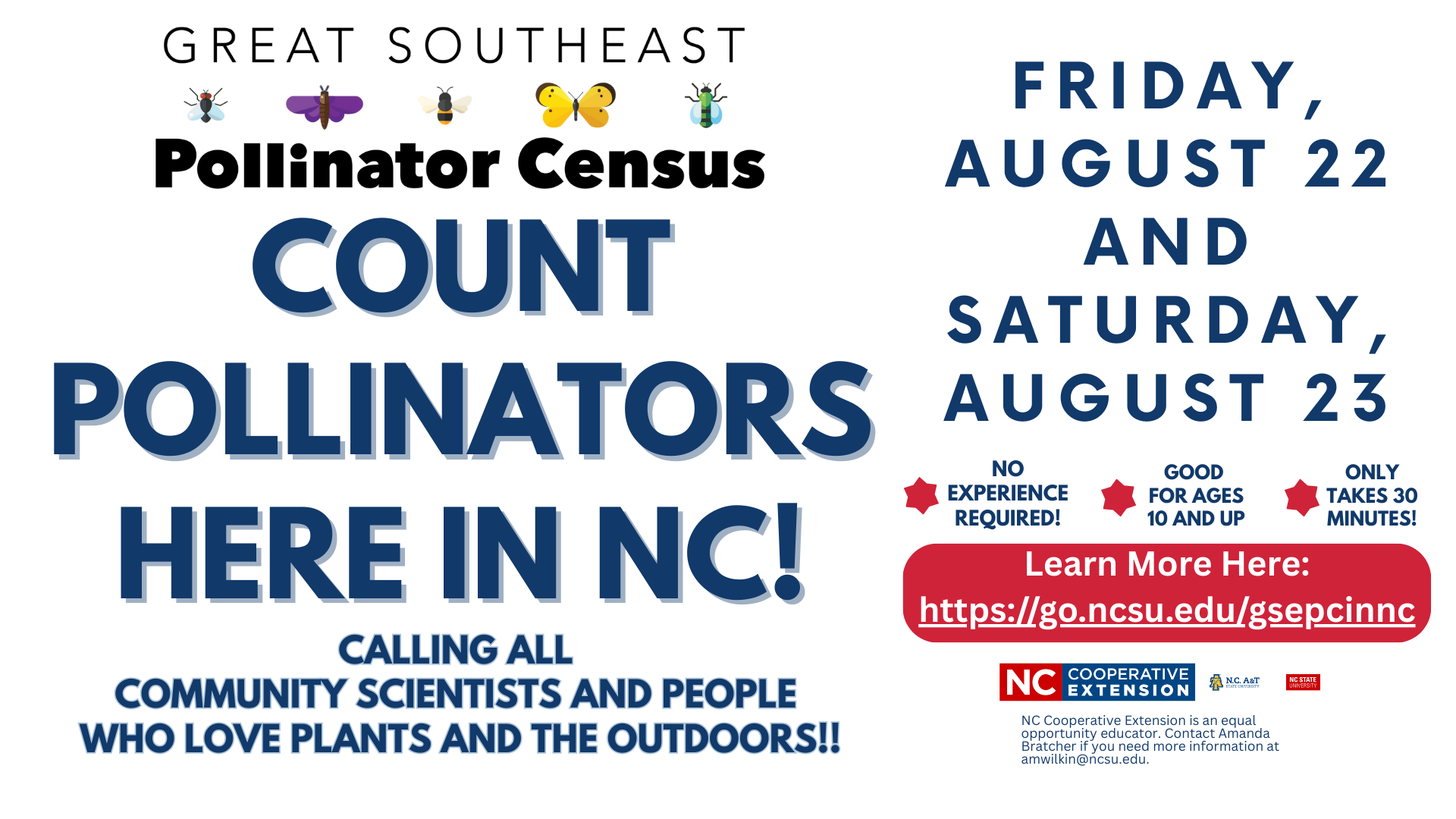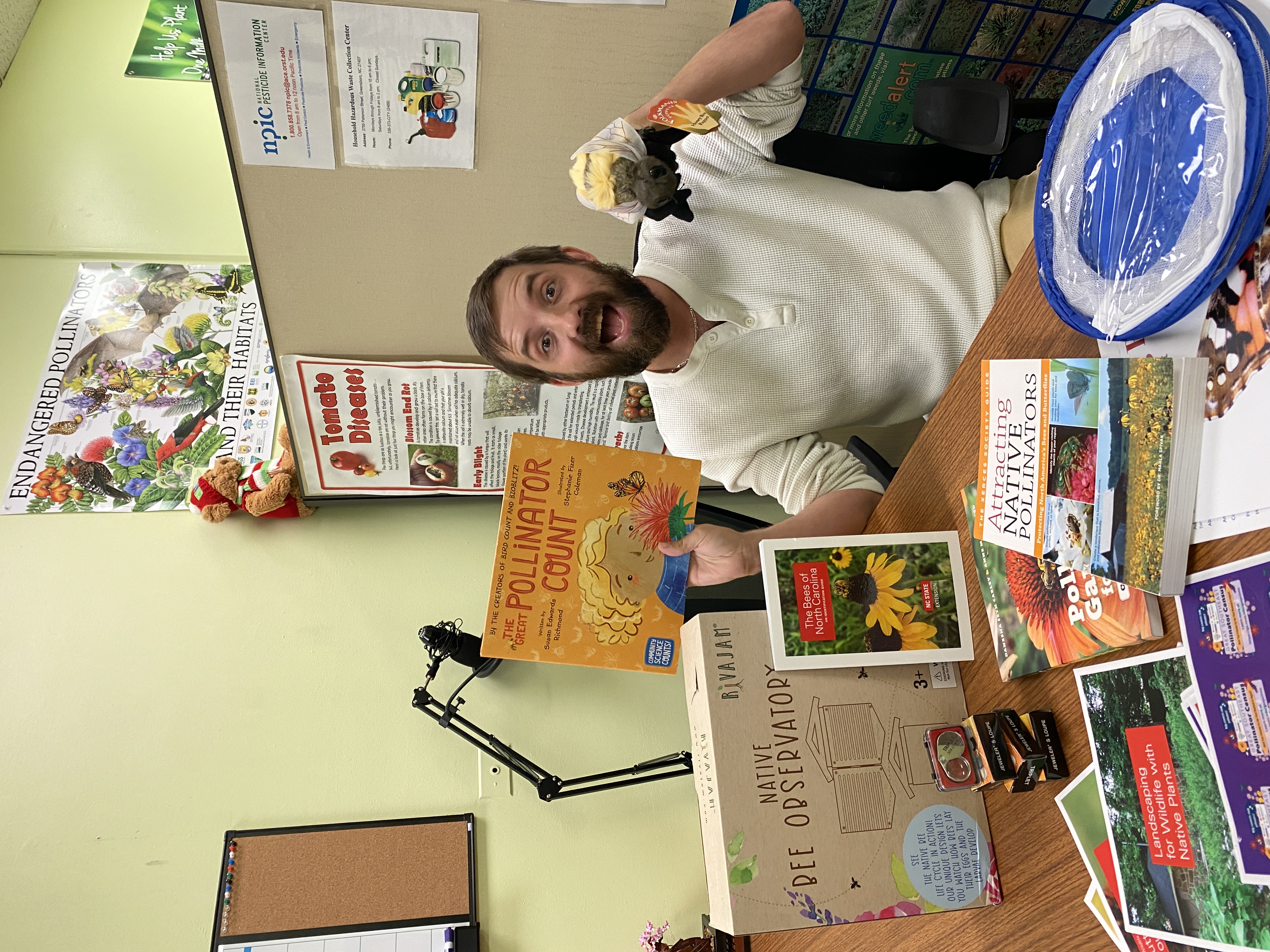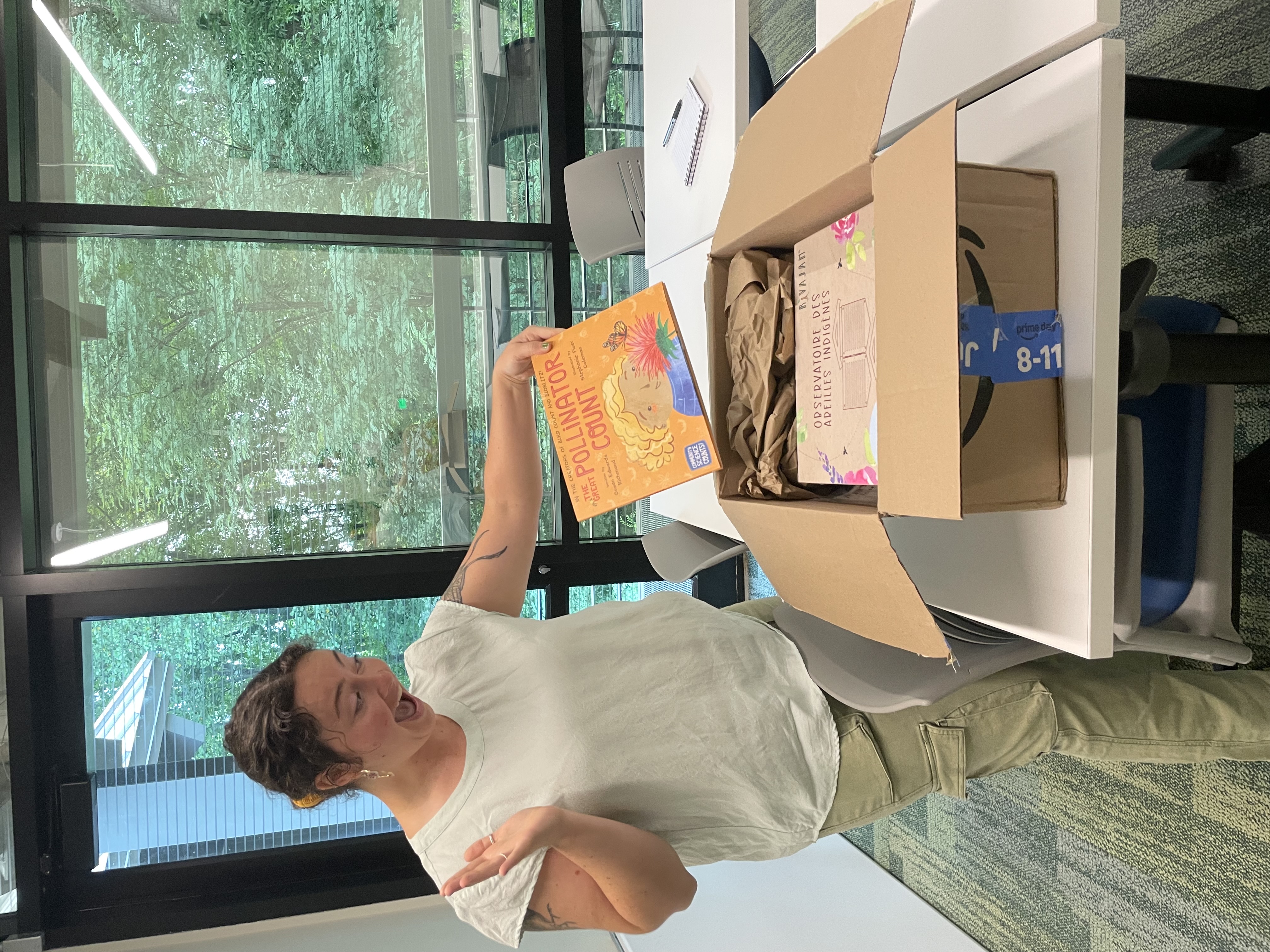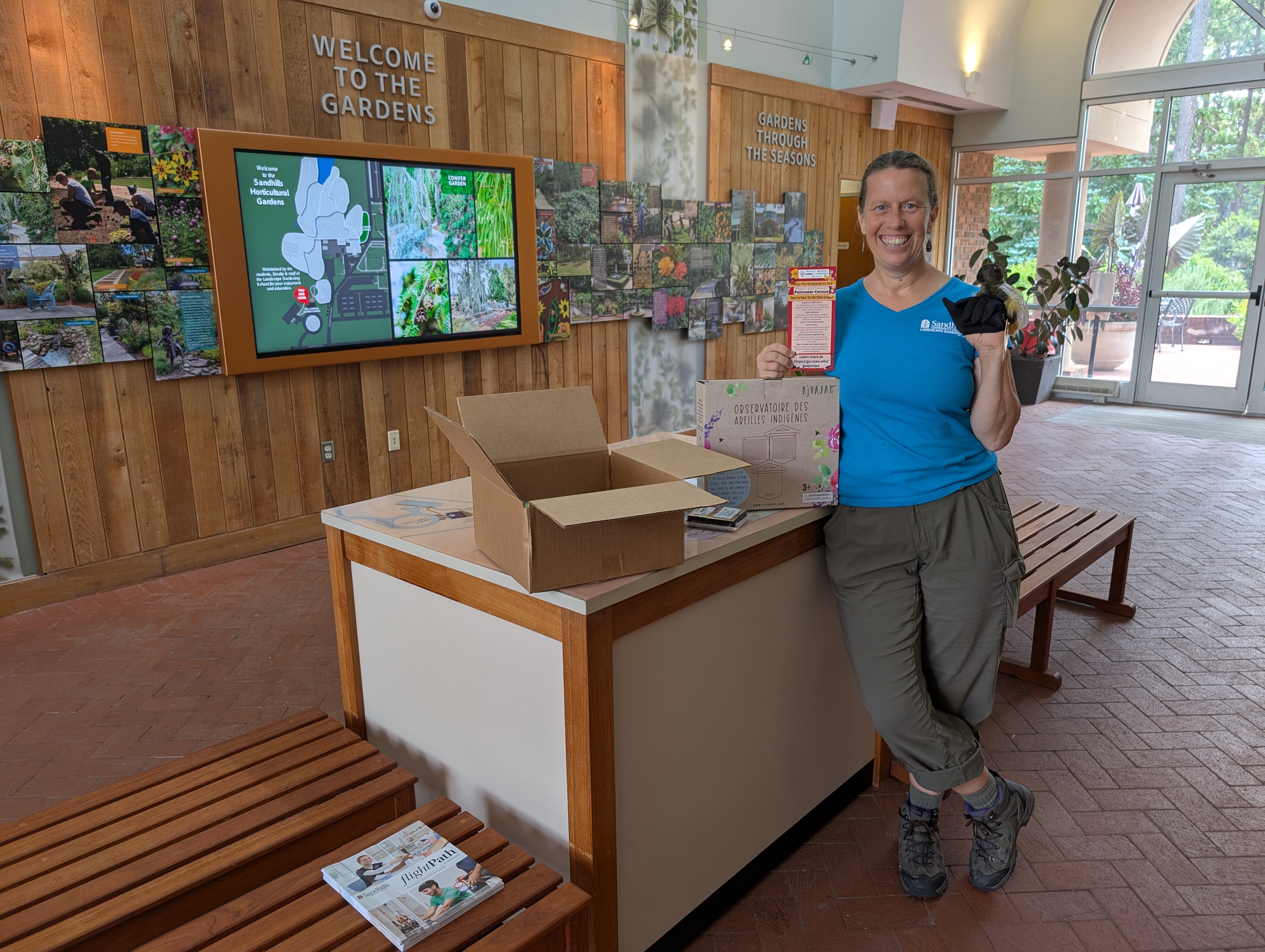Anyone Can Count Pollinators in North Carolina for the Great Southeast Pollinator Census
go.ncsu.edu/readext?1088532
en Español / em Português
El inglés es el idioma de control de esta página. En la medida en que haya algún conflicto entre la traducción al inglés y la traducción, el inglés prevalece.
Al hacer clic en el enlace de traducción se activa un servicio de traducción gratuito para convertir la página al español. Al igual que con cualquier traducción por Internet, la conversión no es sensible al contexto y puede que no traduzca el texto en su significado original. NC State Extension no garantiza la exactitud del texto traducido. Por favor, tenga en cuenta que algunas aplicaciones y/o servicios pueden no funcionar como se espera cuando se traducen.
Português
Inglês é o idioma de controle desta página. Na medida que haja algum conflito entre o texto original em Inglês e a tradução, o Inglês prevalece.
Ao clicar no link de tradução, um serviço gratuito de tradução será ativado para converter a página para o Português. Como em qualquer tradução pela internet, a conversão não é sensivel ao contexto e pode não ocorrer a tradução para o significado orginal. O serviço de Extensão da Carolina do Norte (NC State Extension) não garante a exatidão do texto traduzido. Por favor, observe que algumas funções ou serviços podem não funcionar como esperado após a tradução.
English
English is the controlling language of this page. To the extent there is any conflict between the English text and the translation, English controls.
Clicking on the translation link activates a free translation service to convert the page to Spanish. As with any Internet translation, the conversion is not context-sensitive and may not translate the text to its original meaning. NC State Extension does not guarantee the accuracy of the translated text. Please note that some applications and/or services may not function as expected when translated.
Collapse ▲
We Need YOUR Help!
Get ready, North Carolina! It’s time to join a critical scientific effort from August 22-23 and contribute to the Great Southeast Pollinator Census (GSEPC).
Our goal across the state this year is ambitious: to achieve more than 5,000 counts, and your participation is vital to reaching this milestone!
You’ve likely heard the urgent news: pollinator populations are declining and there are many reasons why. While scientists work to actively track these trends, they need our collective eyes to gather the massive amount of data required to help understand what is happening in communities across the state. Every count, whether you do one or multiple during the weekend, adds to a powerful dataset that helps researchers understand insect diversity and populations, informing vital conservation strategies.

N.C. Cooperative Extension-Guilford County was a Pollinator Outreach Kit winner! Their public event is happening at 3309 Burlington Rd., Greensboro, NC 27405 on Saturday, August 23 from 10 a.m.-1 p.m. Photo by Holly Key
What is the Great Southeast Pollinator Census?
It’s a simple, two-day community science project that empowers anyone to be a scientist. All you need to do is observe a plant that’s being visited by pollinators for 15 minutes and tally each time an insect lands on it. Don’t worry about identifying every insect – the free datasheet (available on the GSEPC website) has pictures to guide you. Afterwards, you just upload your counts to the GSEPC website. It’s that easy!
If you’d like to sharpen your insect identification skills, a free webinar we recorded with entomologists from NC State gives you a crash course in what these insects look like. You can watch it on the NC State Extension website at go.ncsu.edu/gsepcinncinsectidwebinar2025.

Catawba College was a Pollinator Outreach Kit winner! Their public event will happen on Friday, August 22, from 9 a.m.-4 p.m. Photo by Hannah Addair
How Can You Participate in North Carolina?
The beauty of the GSEPC is its flexibility. You can participate right from your own home—in your backyard, vegetable garden, or even on your farm. Get your children involved for a fun, educational activity! Local parks, nature preserves, and public gardens are also excellent spots to observe. You can learn more about how to participate at the GSEPC in NC website.
Many Extension offices, libraries, botanical gardens, and local groups across the state will be hosting organized counting events. You can learn more about public counting events at the GSEPC in NC website. You don’t have to count alone!
Your participation in the Great Southeast Pollinator Census is more than just counting insects; it’s a direct contribution to preserving the essential biodiversity that supports our own lives. Last year, North Carolina saw a surge from 1,475 counters in 2023 to 2,283 in 2024, and insect counts increased dramatically. Let’s build on that momentum and help NC reach over 5,000 counts this year!
The GSEPC in NC website also has lots of resources and activities to engage further with insects in your local community.

Sandhills Horticultural Gardens was a Pollinator Outreach Kit winner! Their public event is happening on both Census days from 9-11 a.m. at the Gardens, 3245 Airport Rd. Pinehurst, NC 28374. Photo by Amanda Bratcher
History of the Program
The GSEPC, which first came to North Carolina in 2023, was designed by Becky Griffin at UGA Extension in 2017 when she noticed community and school gardens were great at growing vegetables, but lacked fruit set because there were few flowering plants to attract pollinators. She work on the Census to increase awareness and literacy about the incredible insects in our gardens, increase pollinator habitat, and empower everyday community members to contribute to scientific research.
For more information or questions, please contact Amanda Bratcher at 9197755624 or amwilkin@ncsu.edu.


